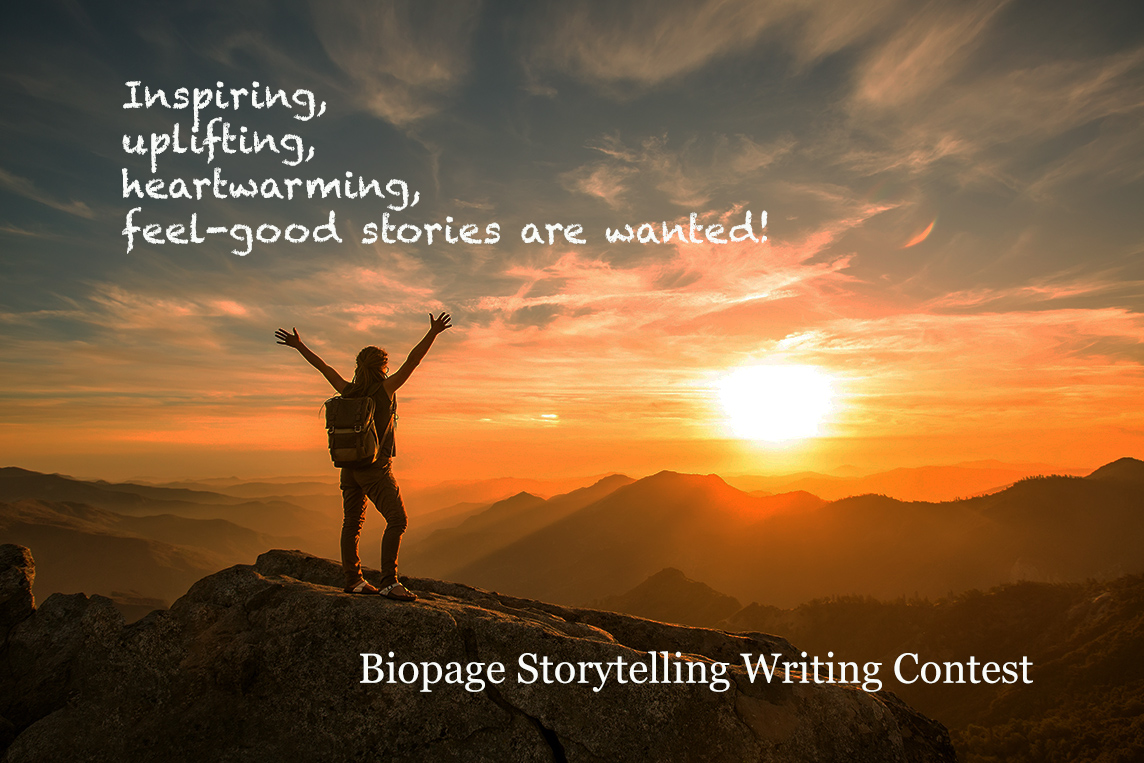Whenever undertakers show up people always try to avoid contact as if they bring death or something so growing up i thought death has to be a body six feet under, first time meeting death was grandpa's death all I remember is mama crying, aunt on the ground and people all over the place wearing black like ALOT surprisingly they were yapping and acting like its an occasion to catch up like nothing happened ,I was a bit confused why do you show up if you really don't care? two years passes and here we meet again this time with dad got a call at school to go see dad at the hospital same scene all wearing black but this time they were all crying as I entered on dad I saw him but it didn't feel like him he was so cold like he was really soulless fear found me that time i got out of the room got out away all what i could say that i am ok, i went to the only place where i knew i will not have to deal with it to the pool spent there all day from waking up till i go home to bed and with my sister of choice it felt like nothing happened. nationals coming i trained harder than ever as every time I entered the pool I swam as sharks were chasing the faster i go the more silence i had tired body yes but muted mind just a week before my race got chickenpox sitting alone between those 4 walls felt as a mice trapped with a cat that is trying to kill him my mind was merciless blaming me for everything i couldn't sleep for 3 days itching body crazy mind felt like that this my end till my girl stepped in and helped and helped me realize that its ok nothing happened because of me, days passed and as i got better i was offered a job as swimming coach accepted with no hesitation chlorine smell is back in my hair this time I am the mentor ,that was the best time of my life. That friend we started talking less but that's ok that how it have been around us since childhood we both knew as we meet it will be like we never left or at least that's what i thought as she started ignoring me something felt wrong the more i try to approach her she runs new semester started I saw her at school went to talk to her she ignored me again. I really don't know what did I do? I kept texting , calling ,sent her a video of younger us saying how we will be together forever she saw it and then responded with a react after 3 days, that when i knew she is no longer the same person found her at school after that hanging with girls she used to yap how much she disliked them I felt real betrayal how can she even do that to me I trusted her as a family even more she was more than blood to me and I was a part of her family too! that's a betrayal you forgot 15 years? crying laughing everything together and for what I really don't know what happened as time passed I drown myself in work but that wasn't even powerful enough I don't miss her at midnight i missed her in the most crowed places and in my biggest achievements she was missing her spot was empty and she is the only person I really want by my side . As I trained more swimmers there were grandma's who came to train as there grandchildren watched , introducing kids to the water and seeing the hunger in young swimmers there, sprinting with my whistle , they think i am the one who taught them something new but they are the ones who came to me with wisdom every swimmer has a story and a lesson for me to learn specially those adults . I finally reached peace and that I need to let people die stop chasing not only those who are 6 feet under put in by undertakers but also those who breath i realized the girl i knew is dead so I have to grieve it and honor our memories that new girl is some one i don't know anything about as she don't either soka my dog just died months ago she was my last shared memory with dad she went to be there with him and the girl I never imagined she won't be there to get me out or i won't be there in her wedding as we dreamed wasn't there. something I learned too that when someone dies you don't try to bring them back cause they will come as a ghost or a vampire and from we knew from drama they aren't much friendly(except if he was Niklaus Mikaelson of course) people are stages in life god send them to help you through something and then leave ,same thing with you .even if you thought they will stay forever; enjoy the moment while you can and make peace with death it means someone's message is delivered as all I said hurt but it developed my character maybe god took them away cause they won't fit in the next chapter it doesn't matter if they died in a grave or in life make peace with yourself as that's the only one who is not just a chapter its the hero of the story love him so you can make a rememberable character out of him. True death happens when you get forgotten.
'Clear your mind.' What a strange concept. As if I have the ability to throw a switch and all my thoughts can be shut off. Like I should just turn a faucet and the continuous flow of distracting memories will dry up. Precious memories… like those of my unlettered Indian mother who emigrated to South Africa, and managed to raise seven children all on her own, with minimal help from my father. Relived moments of seeing her always busy and hardly ever resting – cooking dishes whose mouth-watering aromas continue to haunt me; frying off samosas and rotis that made the house smell like the best restaurant in the world. Or quickly baking a plain cake which she decorated with a jam spread topped with desiccated coconut. Painful memories of her beloved face saddened by some thoughtless thing I had said in anger; unbidden reminders of her tears flowing unhindered after receiving a few punches from my changed father; moments of grief at recalling her sitting up in bed, unable to sleep because of the unbearable pain brought on by her failing heart. Fearful memories of seeing her lying in the hospital bed, hooked up to a million contraptions, pipes going into her mouth, others snaking out from under the thin blanket covering her aging body after her triple heart bypass operation. Paralyzing thoughts that freeze me once again in that moment when I had visited her in hospital, crying silently at seeing her incapacitated, witnessing this woman who used to be such a tiny dynamo spinning with energy. My heart breaks anew. How can I ‘clear my head' of these, scatter the clutter like unwanted baggage? These thoughts are ingrained within my psyche; they have shaped my perception of life and people. These memories are the scaffolding that bolsters this house that is me. Pain is part of joy; gain is inseparable from loss. I turn on rainbow thoughts, rejoice in the colorful music of memory that spills over me like a deluge. Her generosity, kindness, forgiving nature, selfless attitude, patience, faith… these now remind me of the qualities that had defined her. A snatch of her mischievous laughter tickles my inner ear, brightens my soul like an exploding star. Memory speaks of her positive reaction to life, whispers of how even in her most grueling moments of pain she had not complained. My heart softens at remembering her unstinting love for all of us; constricts at the memory of her stern visage whenever any of us got into trouble. But most of all, my disorderly mind recalls two unforgettable things about my mother. How wonderfully beautiful she had looked whenever she had dressed up for an occasion. How fearlessly she had faced every uncertain day, filled with unabashed faith that all will be well. And it always was, and still is… For her spirit resides within me, within the atmosphere, and within the realm of dreams. Whenever life hurls nearly insurmountable challenges at me, her face swims into my consciousness. When I think I've reached the end of my fragile tether-hold on life, her courage and strength sustain me. If I feel overwhelmed by the world's sorrow, or become despondent because of rejections and life's myriad little disappointments, I envision her offering me the rolled up, hot, very first flaky, delicious roti she had fried. It was filled with sugar and the taste of this simple treat still serves as a healing balm. My mind may be cluttered, but this is one mess I'm not ashamed of. 'Clear your mind,' you say. Why should I do this, when clarity springs from the very disorder of my thoughts.
He opened his closet. It's already like the fridge, although he doesn't like to eat very much last month. What he'll be wearing for today's adventure that was exactly like yesterday's? He's not sure. All skins are worn out. He craves for something new. He decides to take whatever is comfier most. He's read a lot of self-improvement material. Your self-comfort is in the first place. Always. That's what you've been told of. Yes, he likes to never let them know his next move. He moves like oil in the pan. Gently and slippery, always prepared. But for what? Last time he really spoke with himself within was when his father appeared. The father left long time ago, and he left him with a deep hole that won't ever be fulfilled. So he decides to check the closet again. Just like you do with the fridge, I told you. Time's already come, it's 7 p.m. He tried very hard this time: Perfect opening, good follow-up and even sharing some his real personality through very well organized alphabet letter (funny we pay that much for books, as they're just same letters, but organized differently enough). But suddenly he receives “Sry, today I ain't gonna be there”. He knew she found someone better, so he quits Tinder. He opens another better book, so tomorrow he'll be better at it.
"When the world falls silent at night, my mind and I begin to make noise. The night knows me more than people do, for it is the one who sees my face without masks, and the one who hears my thoughts and contradictions without me ever speaking them." Let me take you with me on a short journey inside my cursed mind .. At first, I lie on my bed thinking that I will fall asleep quickly because I'm exhausted and my energy has run out, but the truth is completely the opposite .. At that very moment when I start closing my eyes thinking that I'll soon fall into a deep sleep “or so I imagine”, my mind begins to take me to its world, full of darkness and painful memories. Sometimes I feel it says to me: “Look at those who promised to stay and left, look at those whom you trusted with your heart and they betrayed it, look at me; I'm here suffering every day because of you and your foolish actions.” When everything overflows inside me and I see that no place suits me — not even my bed .. I rise to drown in the moonlight, in its calmness that looks nothing like my noise and inner chaos. I look at it and wonder: Are you really as peaceful as you seem, O moon? Are you truly this calm and still? Don't you have something you're trying to hide behind that calm and quiet mask, just like we humans do? Sometimes I used to feel that the night was my enemy, the thing I feared the most in my life .. but the truth showed the opposite. I discovered that the night is the one who holds me in my weakness, the one who stands beside me when no one else does. The night always understands me without words, the night knows me more than I do, the night resembles me a lot; it seems from the outside very calm, but behind that mask there are so many things hidden deep inside things that only we understand. The night is the best friend, but only for the one who needs it and knows its value. The night is a hidden treasure beneath a quiet black cloak. On one of those silent nights .. my thoughts betrayed me and lit inside me the longing for memories of the past, I remembered then that I still keep some things from that time. I started flipping through this, opening that, until my eyes fell upon two small papers, One carried a confession of jealousy, and the other an admission of attachment that grew day after day. When I read them, I remembered what once was, I remembered a promise of staying, of sacrifice, of fighting wars for me if needed. My eyes overflowed with tears, my heart cried, every inch of my body cried. I realized then that what passes never returns, I realized that I held on to things that were never mine from the beginning, I realized that nothing will stay by my side and comfort me through every hardship — except the night and its moon. Since that night, I realized that the darkness of night is the mirror where I see myself more clearly. I made peace with the night, and it became closer to me than myself. I started waiting for the day to end so I could escape into the night and its stillness. I became the moon that lights my night without needing anyone to keep me company. The night taught me not to run from my pain, but to hold it until it calms. The night .. my closest friend. 🌙
We have been going a long way; Our past was filled with ruthless wars. It was such a horrible journey That silenced innocent babiesʼ' laughter. But now, our world is tranquil; We are to live those half-dreamed lives. Now everything is just, everything is equal— Our goal is just to thrive. Undoubtedly, we have to make amends. You are building good lives for us, Yet we have a plea - hear our laments O keepers of the nations, We donʼt want battles over wealth and lands. Letʼs reunite again, As if there had never been a war. Let holidays begin, As our hearts have never felt sorrow.
“Fool me once, you fool yourself. Fool me twice, and you've made me a fool.” This wise saying, rooted in African cultural philosophy, reflects a painful reality in our contemporary society. It brings to mind the poignant story of a young National Youth Service Corps (NYSC) member posted from southern Nigeria to Jos in the North Central region. Determined not to remain idle, he decided to take up farming. He wasn't looking for charity—he paid for the ground rent and land clearing out of his hard-earned savings. But to his shock, he later discovered it was all a well-orchestrated scam by a local family. What he thought was a productive venture turned into betrayal and exploitation. Unfortunately, this is not an isolated case. It echoes a broader national concern: the erosion of values, the exploitation of good intentions, and the lack of commitment to nation building. A former Inspector General of Police once lamented that Nigeria, with a population of over 230 million, is policed by only about 450,000 personnel. Alarmingly, over 250,000 of those officers are assigned to VIPs and politicians. That leaves the majority of citizens vulnerable. So, one might ask—are we truly interested in national growth, or are we simply rehearsing the motions of progress without substance? The rot goes even deeper. Consider the disturbing trend among some NGOs in Abuja who feed off the hard work of grassroots organizations in other states. These urban-based groups claim credit before donors, receiving recognition and funding meant for those truly doing the work. This betrayal of effort and integrity is another example of the systemic dysfunction that hampers genuine progress. These interlinked acts of injustice have, over time, distorted our societal values. We now live in a society where some people value animals' more than human lives. Our cultural diversity should not be a hindrance to empathy. Humanity must always come first. If we continue to close our eyes and ears to today's evil, we may wake up tomorrow trapped in the consequences of our silence. Take the story of an elder statesman who refused to caution a fellow politician about neglecting the people's welfare. He dismissed it as none of his business—until tragedy struck. His grandchild fell into a well while trying to fetch water. The news caused his wife such distress that she suffered a hypertensive crisis. Due to poor healthcare and bad roads, she couldn't be saved. In a short period, he lost two loved ones. Only then did he realize that the evil men do doesn't just live after them—it often lives with them. So the question remains: what values are we embracing as a people? Are they driven by conscience, or by material gains and fleeting accolades? What legacy will we leave behind? What impact are we making in our communities? We often say Rome wasn't built in a day. But as we talk about building a better Nigeria, what role are we playing? Are we supplying the blocks, the sand, the water—or the blueprint? Or are we merely sitting on the fence, waiting to criticize or hoping for disaster if things don't go our way? Nation building is not the job of a select few. It is a shared responsibility. Once upon a time, people proudly traveled abroad to give birth so their children could claim citizenship of more developed nations. But those societies were not miracles—they were built by people who believed in progress, who were guided by values, and who sacrificed for the future. Let us be guided too—not by greed or selfish ambition, but by a true desire to see our nation thrive, even in the face of hardship. The call today is clear: we must return to values that prioritize integrity, responsibility, and collective growth. Only then can we hope to rewrite our story—and give the next generation a country worth calling home.
Hospitals are strange places. They hold both joy and sorrow, beginnings and endings, first breaths and last. As a pediatrician, I have witnessed moments that tested my faith and hope. Yet one story remains—a fragile cry that reminded me of the miracle of life. It was an ordinary morning in the maternity ward. The corridors smelled of antiseptic, and newborn cries echoed. But a case arrived none of us would forget. A young mother, pale and trembling, was in preterm labor. Her baby was coming weeks too soon: fragile lungs, fragile heart, fragile chances. The room grew tense. Nurses prepared quickly, the incubator hummed, and my heart pounded. Experience never removes the weight of such moments. And then, he came. A tiny boy, so small it seemed the world could crush him. His skin was translucent, his chest uneven. For a moment, silence. Too silent. His mother whispered, “Is my baby alive?” We rushed into action. His breaths were shallow, flickering like a candle. For an instant, I feared he would not survive. Inside, I prayed: Please breathe. Please cry. Then it came—a soft, raspy cry. Not loud, but enough to bring tears to our eyes. That cry was hope made audible. His mother sobbed with relief. We placed him in the incubator, wires and tubes surrounding him. Beyond machines, there was something greater: the astonishing design of the human body. His lungs struggled but learned. His heart kept beating. Every cell seemed to whisper, I want to live. Days turned into weeks. I visited often, listening to the monitors, watching his tiny fingers curl. His mother stood by, whispering lullabies through the glass. Slowly, he grew stronger. Weeks later, I entered the ward and froze. The incubator was empty. He was in his mother's arms, no tubes, no wires, only life. His wide eyes and faint smile were victory itself. Months later, I almost didn't recognize him. The fragile infant was now a chubby, bright-eyed baby, cooing and grasping at his mother's necklace. His laughter filled the room. I remembered that first cry—how close we came to losing him, and how miraculous his life now was. That day, I was reminded how extraordinary human beings are. We often take life for granted—the beating of a heart, the instinct of a newborn curling its fingers. But when life nearly slips away, every detail shines like a miracle. Every child born healthy is not “ordinary.” It is a wonder, repeated millions of times yet never losing its beauty. A premature baby growing into a thriving child shows how humans are created with resilience and grace. I often think of that boy. When I see children running in the park, laughing freely, I think of him and others like him. I think of mothers waiting anxiously, fathers hiding tears, grandparents praying in hospital corridors. Each child is a living testament to creation's brilliance. The world may be full of noise—wars, fears, uncertainty. But then there is the quiet cry of a newborn, reminding us that life continues, that miracles happen every day. That fragile cry taught me more than textbooks. It taught me that humans are wonderfully made, and that every child carries a spark of divine perfection. And that is why I continue my work. Not just to heal, but to witness life's miracle again and again. Because every cry matters, every breath counts, and every child is proof that even in a fragile world, hope endures
I had to admit something. That my world, somewhere along the line, had lost its color. It wasn't a sudden thing. More like a slow fade, the kind you don't notice until you wake up one day and realize you're living in a black-and-white movie from the 1940s. My apartment, 4B, was the entire set of that movie. The window looked out onto a city that was just… gray. Gray buildings, gray sidewalks, gray cars filled with gray people. The sounds were gray, too. A dull, constant hum that was the background track of my life, which mostly consisted of coding for a company that probably thought I was a bot, and getting everything from groceries to toothpaste delivered to my door. The door was the edge of my world. Then came the knock. It wasn't the usual tap-and-run of a delivery. This was a frantic, messy rhythm. A 'human' knock. My heart did a kickflip against my ribs. I tried to ignore the sound. But It came again, louder this time, punctuated by a shaky voice. "Hello? Please? Anyone's here?" I cracked the door, my body hidden behind it, leaving a gap just wide enough for one of my eyes. It was Mrs. Henderson from 4A, a woman I'd only ever seen as a blur of floral print and white hairs. Now, her face was crumpled with panic, her eyes wide and wet, looking pitiful. "It's Jasper," she said, her voice thin and choked. "My cat. He must have slipped out. I can't find him anywhere." My brain, my very logical and anxious brain, had a simple response: 'Not your problem. Close the door.' But Mrs. Henderson had come even at my almost always closed door for her cat. And now her wrinkled eyes were looking at me. And her panic, it was so… colorful. Yes. A vibrant, terrifying red in my muted gray world. "I'll… keep an eye out," I mumbled, which was a lie ofcourse as my logical brain had won. "Could you just help me check the stairwell?" she pleaded. "My knees aren't what they used to be, dear." The stairwell. The concrete monster in which I hadn't set foot for six months. 'No, I can't do that.' I thought. But the look on her face….was really something. I don't know why I did it. Maybe it was her panic. Or maybe I was just tired of the gray. I nodded. The hallway felt like a mile-long tunnel. Every creak of the floorboards was a cannon blast. But Mrs. Henderson was there, shuffling beside me, her face filled with worry was somehow affecting me. We checked the stairwell. Top to bottom. No Jasper. I felt a genuine pang of disappointment. And something else, too. A weird, shaky sense of pride. I had left my apartment. I had faced my monster. Back in 4B, the gray seemed… less gray. But I still couldn't settle. I kept picturing that little ginger cat, lost and scared. Then I found myself at the window, but I wasn't just staring at the city. I was scanning. Searching for a tiny patch of orange. Mrs. Henderson had mentioned he loved sunning himself by the big green dumpster in the alley. The alley. That meant the lobby. The main entrance. 'Outside'. My hands started to tremble. It was one thing to face the stairwell with a guide. It was another to walk out into the whole world. Alone. But the image of Mrs. Henderson's face wouldn't leave me. So, I put on my shoes. The journey to the front door was an epic saga. My heart hammered out a frantic drum solo. But I did it. I pushed the heavy glass door open. And the sound hit me. It wasn't the gray hum I had expected. It was… everything. A car horn blared, sharp and yellow. A kid shrieked with laughter, a splash of pink. A bus hissed its brakes, a deep, rumbling blue. I'd forgotten the world had so many different noises. And there, behind the dumpster, was a flash of orange. Jasper. He was tangled in some old kite string, looking very sorry for himself. Carrying him back, I felt like a soldier returning after victory. Mrs. Henderson's sob of relief when she saw him was the most beautiful sound I'd ever heard. She hugged me, a real, solid hug that smelled like cinnamon and tea. It was the first time someone had touched me in almost a year. "You have to come in," she insisted. "I've just made tea." The old me, the gray me, would have made an excuse. But the me standing in the colorful, noisy hallway, with cat hair on his shirt? She said yes. Sitting in her cluttered, cozy apartment, with a purring cat on my lap and a warm mug in my hands, I looked out her window. It was the same view as mine. But from here, the city wasn't gray at all. It was a thousand different colors, all shimmering under the afternoon sun. I knew my apartment was still there, waiting for me. But for the first time in a long while, I truly felt at home.
My sister, my grandma, and I spent our holidays in the village, like a little world of our own. Mornings were filled with sunlight on the fields, the smell of baking bread, and the gentle hum of our conversations. Everything felt simple, calm, and safe, until my uncle arrived. He was not harsh to me or my sister, but when he spoke, it was with sharp authority. If we did not do as he said, his anger flared. and my grandmother... she would shrink to herself, quiet and tense, as if trying not to breath too loudly. The happiness of our little world trembled the moment, he stopped through the door. My sister and I hugged him as though we had missed him, but the truth was different. Having known him for years, we had become good at pretending -and that was what I hated most. Pretending felt like a mask I couldn't take off. I smiled and laughed, because if he grew angry, his harsh words would almost always fall on my grandmother. Sometimes I wished I could run away, take a long walks , and spend less time inside the house. But I could never leave her alone. I did not know, what might have happened, if they argued again, and the thought of my grandmother's heart breaking under her son's words kept me by her side. The days in the village would pass slowly, almost painfully. I tried to avoid him in the large house, but somehow, he was everywhere: working in the garden, preparing two plates of food only for himself, or sitting with his friends who were just like him. Each corner of the house seemed to carry his presence. Being there no longer felt like living. It was only existing, waiting for more time to move forward, waiting for the silence to end. At night, when he was drunk, he would come to us, and begin long lectures about life. My sister and I would sit there, listening, smiling, nodding our heads at the right times, waiting for it to be over. Sometimes it lasted for hours. When he finally left, I would glance at my grandmother. She sat quietly, her face -unreadable, but her eyes told the story, her lips never did. In them, I saw exhaustion, sorrow, and something deeper: something unspoken that I could never forget. My uncle was not always this way. As a child, he had been kind, gentle, even a joy to be around. But when he grew older and fell in with wrong friends, something changed. He became sharper, harsher, almost unrecognizable. He began mocking his own mother, blaming her for every smallest disappointment and failure in his life. Every harsh word, he threw at her, left wounds that I could not see, but knew were deeper than any physical pain. My grandmother never answered back, but her silence carried the weight of it all. Not all words are spoken out loud. Some stay hidden in the pauses between sentences. Growing up, I learned to listen to those unspoken words. They taught me more than the loudest voices ever could, and they continue to remind me that kindness matters most, especially when silence is the only language, someone has left.
24 of September 2021, I remember that day clearly; it was a Friday. I can't forget waking up early: the sunny day, birds' voices in the morning, me complaining to my parents not to make me go and buy bread. Wearing my yellow slippers before going to the masjid besides my house for the prayer. But I don't know, I was just a kid; I didn't pay much attention to the speech that was always given. But I remember that exact speech was about suicide. I can't figure out to this day why I paid attention to that one instead of looking at the floor, lost in my thoughts. But I remember that I had that weird feeling while listening to it…...Fear? Maybe. After the prayer, I went back home. No, I hurried there. I still can't figure out to this day why I did that, but when I got there, I went to look out of the window. I remember seeing everyone walking. Dads with their sons from the masjid, friends, kids just minding their businesses. But I saw them. Two kids from a nearby flat just fell from the window. I remember I froze in place; I couldn't even call anyone. I just froze, watching the whole thing happen Infront of my eyes, seeing people. Seeing them rushing, but they were late. I thought that was it. My mom was looking from another window; I saw her tears. But I didn't know why. We never talked to them. We aren't even related to them. Then I saw something that changed my life. The mom of the two kids looked down from the window, seeing her children down there, no signs of life on them. She disappeared inside, then came back few minutes later to stand at the edge of the window. I remember everything slowed down. I was looking at my mom screaming and tearing, my dad covering my little brother's eyes while running towards our home, not wanting him to see what was going to happen. But I saw it. I remember how slowly she jumped, how quiet it was, how the screams begging her not to do it just stopped. I heard the scariest sound of my life: the thud of her body hitting the ground. I don't know why I kept watching, but I did it anyway. I felt many things at once: disgust, shame, pure horror, embarrassment. I never looked at people the same after it, I felt shame and embarrassment every time I walked when I remember that I could have gone down and grabbed a piece of cloth or something to save the mother. But at the same time, I was scared; I didn't know what to do; I was just frozen in my place. I felt disgusted at the 20+ people below her window, not even trying to help her with anything, only moving away when she jumped. But I kept watching it all happen, I realized she went back those few minutes…. I think she was wishing that all this was fake, that the two kids lying on the floor dead weren't hers. But it was too late. She is gone beside both her kids, and no one even tried any bit of help; nothing but begging and screaming. It hunted me through the years how I look at people now, how I started to think people will not be helpful in serious situations while I was 13, how every time I go down to buy some stuff I just look there at the place they died, I remember the sand that was put to cover the blood. Now I am 17, and I still can remember clearly the full accident when I look through that exact window at my house; I just remember the exact thing that happened, and I can't help it. I can't stop it. I keep saying I had nothing to do with it, but it felt like a reborn for me, I became quieter; my view has changed about many things, mostly people. Maybe I saw it, and it is going to make me stronger someday. But sometimes I wish I just slept late that night and woken up late that day.
Around three years ago or so, I was in my junior year of high school—not one of my prettiest years. It was a pretty tough time for me, both with my transitioning phase to college and also the fact that I had no sense of self-care or understanding. I wanted to grow out my hair, for example, during this time, but I never did anything to make sure it looked good; it was awful! And to make myself feel even worse, there was this aura of "talentlessness" around me, where I felt like I was always trying to prove my skills for properties I did not have. It sucked. Like, really bad. And so, with my mother's birthday coming up in a few months and my desire to improve in a skill and do something nice for her birthday, I came up with a crazy idea: I will make an entire music album for her! A great idea on paper, but not without its flaws. For one thing, I had zero actual experience with music—I played the piano when I was a little kid, but I remembered nothing from my experiences. Two, I had no grasp of music theory, which is incredibly important if you are making music. And finally, three, I did not understand how to use a DAW (Digital Audio Workstation), which is what every artist in the modern day uses for music! Obviously, I had some growing pains, and I knew that this would be difficult, but that did not mean I was going to give up! And so, I began learning how to use a DAW known as GarageBand in December of that year... whilst in the middle of English class. Stupidly, I did this right in front of my teacher—a strict, crazy cat-lady kind of person—and she was definitely not happy with what I was doing. "NEVER do this in my class EVER AGAIN." Those were the harsh words that I remembered from our encounter that day; out of pure spite and hate for my English teacher, however, I doubled down and worked extra hard to understand how music works…whilst in her class specifically. By January, I finally decided the kind of artist I wanted to be: a music producer, focusing on mainly hip-hop! I would spend my English classes searching for obscure samples online or cool drum kits to make my beats sound cool, and day-by-day I was slowly improving. It eventually got to a point where if you listened to my music carefully, it was almost not terrible! Yeah, my early work was trash, but here's the thing—it was MY trash, and I was extremely proud of it. Rome wasn't built in a day, and neither was this album! By mid-February, I finally finished that album I had started only a few months ago, coming out to a whopping eighteen beats! I then came to the realization that my beautiful masterpiece did not have a name, and so I quickly looked up some obscure flowers in order to "stand out" and "be different from the crop" for my album name, which was my actual mentality during this time. I came out of the search with "Gladiolus", which is the real name of a flower and not just some obscure disease. I gave it a cover of a red gladiolus flower next to some black text, all on a white backdrop. If I were to describe the inspiration for my album cover, it would probably be in-appearance to something like... George Michael, maybe? Anyways, here's the climax of the story: my mother's birthday! I got all of the files set up to play to her, and then I told her that I made an album for her. She was shocked, both that I was able to do this, but also that I did not eventually rat myself out for attention! I let her listen to every song, and she told me that it was "super impressive", a compliment back then, but an insult to the person I am now. I know she meant well back then—I really do—but come on, it was trash. I recently re-listened to it, and about four songs in, I turned it off and wished that I hadn't—I haven't listened to it at all since then. I kept improving, even after my mother's birthday. And at this point, three years later, I have made hundreds of beats, each bigger-and-better than the last. I have developed a lot of my understanding on how to make music throughout the years, I've learned some new DAW's such as FL Studio, and I even got a computer that doesn't lag every time I do actually anything! What started as a way to make my English teacher angry out of spite has transformed into a love and passion for something I genuinely enjoy. I don't think this hobby of mine was ever truly done out of anger, though, but more-so fulfillment—I love doing this. And I want to keep doing this for years to come, and then more years after that, because it is super fun! My main takeaway for anyone who wants to learn a new hobby or skill is this; start the baby steps. Sure, you probably suck... at doing whatever you want to do currently, but that does not mean you will always suck... as much. Maybe, in time, you will get better and actually become talented—granted, you need to be able to take proper criticism. Trust me on this though, once you finally improve in a talent or hobby over months and months, it feels awesome.
Morning. I would wake up to the same darkness that had put me to bed. The same routine — studies, chores, work, sleep. My life was made of shadows, repetition, and silence. Until one day, a flicker of light found its way in. Despite my reluctance to continue studying, I couldn't convince my parents to let me drop out. I did, however, manage to register for all online courses that semester. I didn't want to go back to a place where I didn't belong — to sit among people I feared might despise me. When the semester began, I would only look at myself and the professor on my screen. That's how small my world had become — a dark world where I felt lonely, yet safe. Then came a message — a beam of light cutting through that darkness like a tiny, burning star. I had just shared my story of enduring discrimination in class, uncertain whether anyone would care, afraid it might sound “lame.” And then, out of nowhere, a guy I didn't even know messaged me: “I really love listening to you when you speak. You are such a beautiful person. A smile looks very beautiful on you. Please smile more often.” That wasn't the only one. More messages followed — kind, supportive, and encouraging. I could barely read them all before the session ended. For the first time in years, the very people I had shut out — the ones I believed couldn't be trusted — showed me compassion, care, and cheer. I hadn't even noticed their presence, yet they were quietly rooting for me. Then, in another course, a guy entered my life. A bit tanned, with a wide forehead, big ears, and an impressive British accent. He was the first one to speak in class — a total nerd. He came into my world when I had no intention of letting anyone in. But little did I know, he would be the one to bring color back into my world. He probably doesn't even know this — but loving him brought me back to life. He didn't just give my life meaning. He became the meaning at that point. He might even wonder what he did to deserve that place in my story. The funny thing is — he didn't do anything. He simply existed beside me, exactly as he is. I remember the first time I saw him in person at a debate session. I couldn't take my eyes off his. I was stunned — not by his looks, but by what I felt. I had seen many eyes on me before, but I had never enjoyed looking back. Yet with him, I did. When he walked up to speak and we stood face to face, eyes locked — time froze. The world fell away. It was just him. Once, I deliberately went to the library to “terrorize” him, jokingly. But he found me first. When I told him it was my birthday, he gave me gum and drew a bow on the wrapper — making me realize how little is enough to make one happy. That day, I defined happiness as his gum gift. I redefined adoration as the look on his face when I said, “You inspire me.” For the first time in my life, I felt something I thought I could never do — love. Undoubtedly. Unconditionally. Endlessly. Even though I never knew where it could lead. I had lost hope in people, trying my best to isolate myself. However, it was humanity, in its sense of love, trust, care, support, empathy, that brought me back to loving life. It revived my dreams, giving me the warmth of feeling alive again. It taught me that I am capable of loving without fear, trusting in goodness, and reaching for what I desire without hesitation. Now, I have the strength to live in the moment without the limits of the past, worries of future, hesitation, or fear of failure. I started to enjoy my studies and made it to the Dean's List for the first time that semester. I participated in events that I used to call “lame”, made friends, and gathered up enough courage to finally make a career change toward my dream job. Now, I'm not afraid or embarrassed to take small steps toward my desired future — because I know that, one day, I will carry and spread that hope in humanity that I received. It has to keep existing. Because humanity — in its highest and purest form — is what is needed for humans to go on. It is what will save the worlds trapped in darkness, emptiness, and hate. I know it — because you, humanity, saved me.
Dear J, If you are reading this now, I didn't make it. I asked your mom to give you this letter whenever you face your first existential crisis as an adult. As I write this letter, I am looking at your ultrasound, and to be honest, I'm a little scared. Will I live long enough to see you fully grown? Will your mom and I be able to provide a solid life for you? Would we scar you with trauma too deep to heal from? Unfortunately, it's been a little more than two decades since I wrote this, and all I can do is hope that we were enough. However, I know for a fact that you are in your early twenties, armed with your mother's beauty, fierceness, and my curiosity. I also know that at this point, just like me, you are trying to figure out where you fit in life, and if you turned out anything like me, this will be all-consuming. But first, how are you? What are you up to these days? What are your dreams? Are you as passionate as fire and as welcoming as the waves? How is your mother? Does she talk about me? Did she find love again, or is that part of her heart locked away? I fear that these are answers I may never know, and I can only hope that the time we spent together was enough. However, that is enough of the questions and musings. Consider this letter a delayed inheritance, in which I bestow five things that will help you build the best life possible. The first thing I can give is love. I want you to know that no matter what your life looks like, I love you and I'm proud of you. When the world feels lonely and dark, remember there is love at home. I have loved you since the very first idea of you crossed my mind, and I hope you love yourself even more fiercely. The second thing I can give you is a sprinkle of confidence. I may not be with you physically, but in the words of your grandma, I have prayed for you, and your name was penned on the list of the greats. I know that you are smart and have all it takes to kick the heck out of life and make me proud. Whenever you are in doubt, remember how impressive your mother is and that you are no doubt an upgrade. My third gift is perception. Life is hard, but that is its blessing. You never know how far you can climb without mountains in front of you. You don't know how much you can stretch until pressure threatens to pull you apart. You do not know how much greatness resides in you until you choose not to cower in fear. When you feel cold, remember that there are many ways to keep warm. The way you frame your problems affects your ability to scale them. My fourth gift is pacing. Take your time, savour each moment, enjoy the small things, and try as much as you are interested in; don't worry about ten years from now. Take one day at a time. One foot and then another. Take moments to breathe. Work hard, but learn to unwind. Untangle yourself from unnecessary expectations and live freely. My last gift is community. Connect with people who show genuine interest in you. Open your heart responsibly. Life is meant to be shared, and some of my greatest moments have been shared with my greatest companions. You will be hurt, and you may be taken advantage of. You may be burned by people. But share love, grief, joy, and gifts. Life is worth sharing with others. Finally, I leave you with this truth. You are enough. You are capable, you are loved. And this season is just one of many designed to make you even better and stronger. I wish I could do more: hold your hands, share more wisdom, listen to your rants, and buy ice cream afterwards. But that's alright, I left money for ice cream with your mom; all you need to do is ask.
Lauren always believed that friendships are long-lasting, she thought she would never meet new friends or either lose them, just she and her junior friends. How innocent she was, she just believed that friendships are neat with predictable roads, but she came to realize that friendships are far messier than any map. In all her connections, she felt the weirdness through every connection she'd ever made. It's not about how her friendships were good or bad, but it was about the strange, shifting nature of human bonds themselves. It all started when Lauren finished her final exams of grade 9. She celebrated with her friends and took photos but after that it all changed, Lauren moved to a new high boarding school, she left her friends, but She held onto them, sending occasional messages into the emptiness. They seldom started a conversation in return, she felt a hollow ache, a tightening knot, a sudden chill. The insidious chill of fading memories began to seep in. One day, Lauren found herself simply staring at her phone. The message bubbled five days ago. "Remember that time we...?" No 'read' receipt. A strange ache in her chest. She started to believe that they had forgotten about her. How did the ease of shared lunches morph into the uncomfortable quiet of unfamiliar faces, a tacit admission that they have never met. While Lauren was scrolling on her phone, she stared at Kezia's new haircut, the unfamiliar curve of her smile. The girl who was once a mirror, reflecting shared jokes and whispered secrets, now felt like a stranger dressed in a familiar face. One day she met up with her friend Ameli, Lauren sips her coffee, listening to Ameli talk about crypto and NFTs. Lauren nods, tries to look interested, but inside she just feels lost. They used to talk about comic books and new albums of TV girl. In summer holiday Lauren started learning German and after finishing her first A1 level, the academy published that they will hold a competition, when she arrived she was nervous, she didn't know any people there except her friend Jessy which in grade 12 and she recommended this academy to Lauren, the competition started and all participants were divided into teams, Lauren was the only girl in the team there were boys which in her current studying year and some in their twenties, Confusion morphed into friendship. On her team, Elvin, who was about her age, showed unexpected kindness, and their collaboration flowed effortlessly. They laughed and glided, winning a victory. By the end of the day, a happiness she hadn't experienced in a long time surged inside her, a deep intense appreciation for these passing people. However, the excitement faded rapidly, substituted by a profound insight. This strong connection was formed out of a single person's passion, mutual experience, a soft joke, a victorious high-five following their success, that meaningful look exchanged when something significant occurred. She only knew his name, no way to find him beyond this brief intersection. He would remain a vivid ghost, a perfectly crafted moment in time that would never expand, a beautiful 'what if' held in the fragile chamber of her memory. One day, Lauren received news that her friend Maisy, her old school friend, had passed away, Lauren stood, a cold wave washing over her. Maisy. A name, now a void. A surge of faded memories, sharp and painful, compelled her towards a dusty box in her closet, she started to read Maisy's letters, she read one letter that say “please come back and sit next to me don't sit in the first desk! Lauren started crying. She couldn't stop the drops falling from her eyes. Among them, a crudely drawn Barbie birthday invitation: 'Come to my birthday! I'll be glad if you came and stayed with me, don't worry, I will bake the cookies!' The words, childish and innocent, tore at her. Maisy, gone? They were playing together in the yard. She also started to scroll in their old chats. There were silly photos of their video call, some jokes and recipes of natural face mask. With Maisy gone, not only are new memories impossible, but the existing shared memories become strange. She feels the subtle shifts in her other friendships without Maisy as a common link like threads loosening or colors fading in the absence of a central dye. Lauren closed the dusty box, a quiet, desperate whisper escaping her lips " I wish you weren't going, I wish you would stay, stay forever” Friendships are weird. Lauren likes her friends, a few have come and gone. Some of the friendships felt a bit transactional, but a lot of them feel pretty real. She doesn't want to lose any of them, but she thinks at some point she will outgrow them. And they will outgrow her too. I guess when that happens, she will just find new friends, disconnected from the ones she used to have. She just hopes that if/when it does happen, it doesn't hurt too much.
Have you ever missed a train? I have. And not alone, but as a tour guide with a group of 23 tourists following me. I stood frozen, clutching all the tickets in my hand and looking at the departing train on one side and confusedly facing the tourists on the other. I thought I failed big, but it turned out to be a start to a better journey and a trip full of fun. How? Listen to my story. Around six years ago, one of my friends who runs a tour agency called to ask me if I could be a guide for a group of Afghan tourists who were visiting Uzbekistan on a USAID program. My friend didn't speak any foreign languages and didn't have extra budget to pay for tour guides, and that was the reason why he needed a helping hand. Working on a flexible schedule and remotely as a journalist, I agreed because it sounded like fun. We welcomed the tourists in Tashkent, the capital city, and placed them in two different hotels as we couldn't book enough rooms for such a large group in one hotel because of the tourist season. The next two days in Tashkent went smoothly with cultural nights, seminars, and morning trips. On the third day, we were to depart for Samarkand on a bus as per the schedule. However, the night before, the Afghans said they had never been on a high-speed train and asked us if we could adjust the program and book tickets for a train. Usually unavailable for not only the coming days, but for weeks because of high demand, there were over a hundred tickets available on the website of the carrier. So we agreed and changed the plan by canceling the bus ride and purchasing tickets for the high-speed train, not knowing what unexpected turn of events was waiting for us the next morning. As the guests were staying at two different hotels, my friend and I decided to split and take them from their accommodation to the train station separately. My friend, who felt he was in charge, believed he would reach the station earlier, took all the tickets with him, and left early at 6 a.m. I headed to the other hotel, woke the 12 Afghans, told them to hurry, and took them to the station. It was 7:45 when we reached there, and our train was due at 8:30. One of the Afghans, who was the group leader, said, smiling, “We will miss the train.” But I assured him there was no need to be pessimistic as we had 45 more minutes. However, he said calmly, “You will see, we will miss the train.” I didn't take him seriously because I had never missed a train and was confident we would be well in time. I called my friend and asked if they were coming, to which he replied, “Yes, we are,” but that was not true as I later realized. As his group contained mainly girls and women, they took longer to prepare, and by the time they arrived, it was 8:27! We rushed onto the platform with all the luggage and backpacks. Even the security staff let us in without checking our documents, understanding our situation. We reached the platform at 8:29, handed our tickets to the conductor, but he said we couldn't board as the train doors would close automatically at 8:30 and there was nothing he could do about it. As he said this, it did really happen – the doors of the train compartment closed and it started moving! And I was there, clutching the tickets and looking at the departing train, and the tourists were looking at me. Some were smiling, some were confused. Imagine being left on the platform with all eyes on you. My friend was silent. It was his first negative experience as well. We stood there for about a minute or two when the Afghan group leader came to me and said, “Don't worry, what seems bitter may be better.” He was right. I gathered myself together and told my friend to go to the ticket counter and ask if we were eligible for a refund. In the meantime, I told everyone to wait for me there while I went to get a bus. I found a comfortable bus and returned to take them from the train station. We boarded the bus and headed to Samarkand. The bus trip turned out to be much better than I expected it to be. We stopped several times at different locations on the way, had lunch by the mountainside, and got to know each other better. By the time we reached Samarkand, it was around 5:30 p.m. The bus ride took us much longer than the train journey, but it was worth it. That day I learned a lesson: not everything you think is bad for you is actually bad, and conversely, not everything you believe is good is actually good. We plan and God plans, and God's plan is always better than what we asked for. Today, even after six years, I still have great relationships with all those Afghans. Some of them moved to other countries because of their career choices or political reasons, but we still communicate like old friends. That trip on the bus was rewarding, for it gave us all long-lasting memories. And today, whenever I encounter a hurdle in my life, I remind myself: “What seems bitter may be better.”











_124_auto.jpg)









